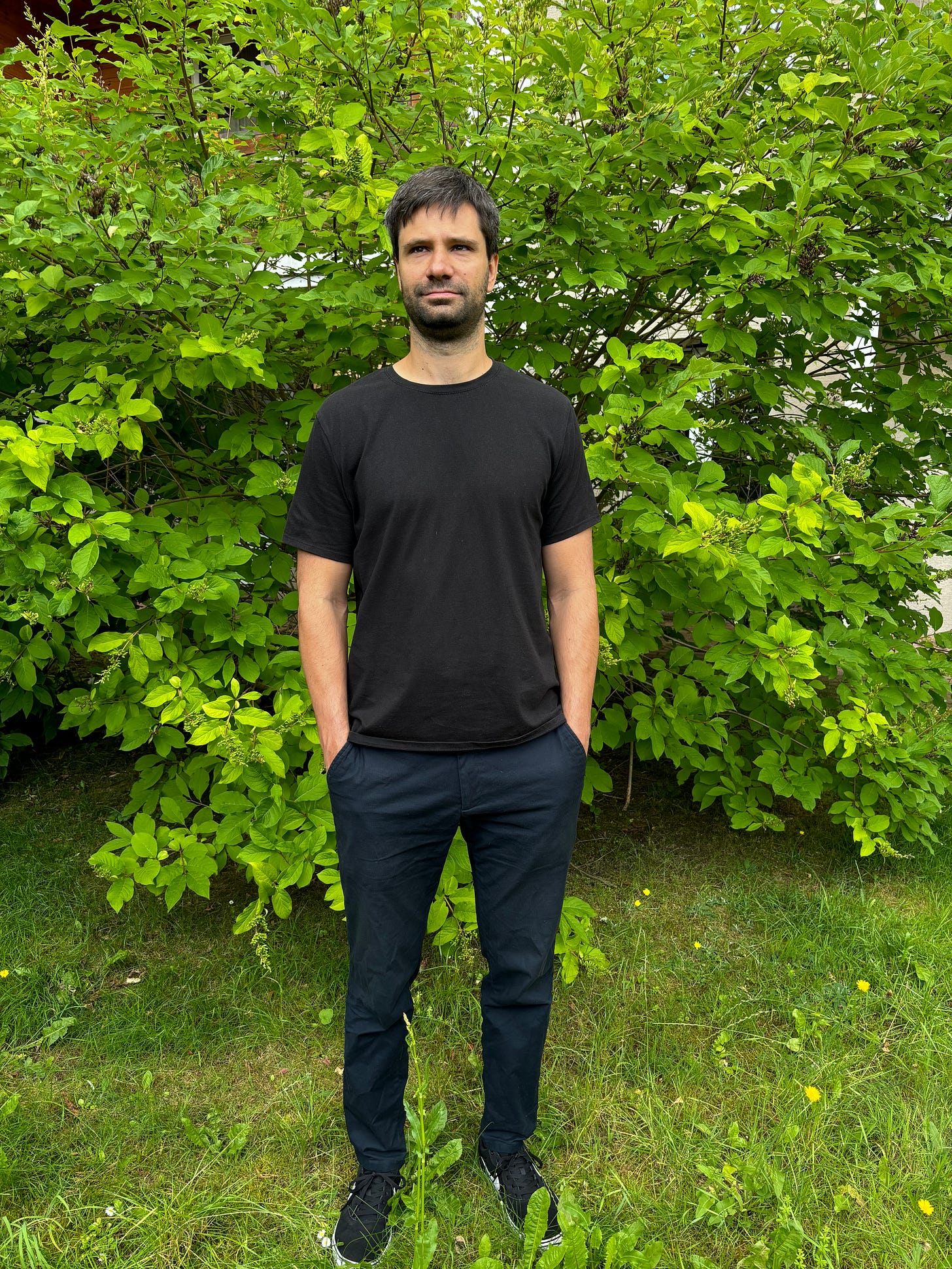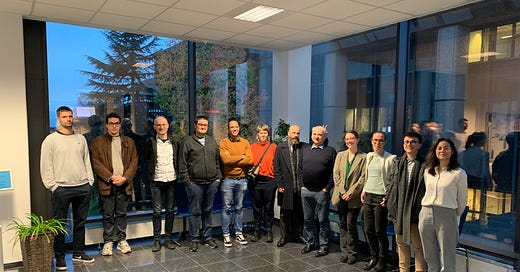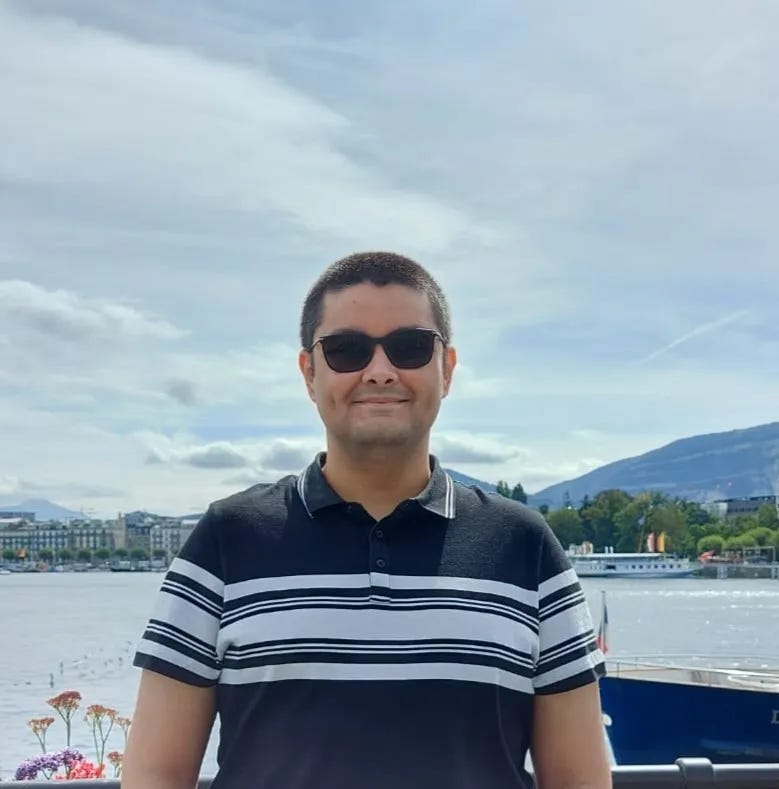Semantics and Memory
Jakub Rudnicki (Centre for Philosophy of Memory, Université Grenoble Alpes)
The purpose of this post is to highlight some recent and upcoming activities at the intersection of the philosophy of memory and semantics, shining a spotlight on this rapidly growing area of research.
Recent Workshop: Memory and Language: The Semantics of Remembering
One recent event in the area was the workshop Memory and Language: The Semantics of Remembering, which took place at Ruhr-Universität Bochum (Germany) on November 19-20, 2024. Organized by Kristina Liefke (Ruhr University Bochum), Denis Perrin (Université Grenoble Alpes), and André Sant’Anna (Université de Genève), it featured talks by ten researchers from seven institutions on four continents.
The workshop presentations centered around four main themes: Reference, Content, Accuracy, and Memory Reports. The Reference theme was covered by talks by Kourken Michaelian, James Openshaw, and Markus Werning. José Carlos Camillo, Jordi Fernández, and Jakub Rudnicki addressed issues related to Content. Christopher McCarroll, Denis Perrin, and André Sant’Anna tackled questions pertaining to Accuracy. Finally, Emil Eva Rosina discussed topics in Memory Reports.
Speakers presenting on reference explored the nature of the referents of episodic memories, i.e., memories of personally experienced past events. Simply put, the central question is: what are such memories about? A related question concerns the metasemantics of episodic memory: by what mechanism does a particular entity become the referent of an episodic memory? Traditional answers to these questions have appealed to an appropriate causal connection between the memory and the subject’s experience of the remembered event. Interest in asking them again has arisen as advances in the empirical sciences of memory have prompted a re-evaluation of traditional answers.
Presentations on content were focused on the nature of mnemonic representations. Do they mirror the contents of other mental states like imaginings, dreams, or hallucinations, or are they different? What kind of entities are these contents? Are they propositions, modes of presentation, or something else entirely?
When talking about accuracy, researchers explored questions such as: how should we determine whether an episodic memory is true or accurate? Should accuracy be evaluated relative to the original event or the subject's experience of that event? Or should accuracy be measured by something else entirely? Another key question in this area is: how much novel content—content not present in the original experience—can be included in a memory before it no longer qualifies as accurate?
Finally, researchers working on memory reports focused on the particular linguistic constructions that people use to discuss episodic memories. They asked, do natural languages have special constructions for reporting episodic memories (as distinct from other kinds of memories)? Are the linguistic features of the verb ‘remember’ similar to or different from verbs like ‘imagine’ or ‘dream’?
These sessions were bookended with presentations by the organizers, highlighting recent developments in the literature and a discussion of the future of this emerging subfield at the intersection of the philosophy of memory and semantics. The plan is for the workshop to become an annual event devoted to tracking developments in this new and active area.
Upcoming Special Issue: Semantics and Memory
One future direction is a special issue of Philosophical Studies on the theme of “Semantics and Memory”. The motivation for this special issue comes both from the workshop described above, and the Agence Nationale de la Recherche–funded project Simulationist and Causalist Accounts of Reference in Remembering hosted at the Centre for Philosophy of Memory at Université Grenoble Alpes in France, with Kourken Michaelian as principal investigator and Denis Perrin and Jakub Rudnicki as team members.
The special issue aims to bring together researchers who work on traditional issues in philosophy of memory and researchers who specialize in semantics (including both philosophers of language and linguists). Its practical goal is to generate fresh insights in this emerging subfield. According to the editors, a recent surge of research at the intersection of memory and semantics—along with a recently published topical collection of fourteen papers edited by James Openshaw, Kourken Michaelian, and Denis Perrin—demonstrates growing interest in these topics and their broader relevance to philosophical work on memory.
The special issue will build on these achievements while inviting exploration of nearby topics not yet thoroughly investigated. The theme of semantics and memory goes well beyond the issues specified above. Below is a non-exhaustive list of further questions representative of this subarea (with a more detailed list available [here]):
● What kind of entity are the contents of mnemic representations? What properties do they have (e.g., truth-evaluability, context-dependence, indexicality)?
● What are the objects of episodic remembering and other experiential mental states?
● Does episodic remembering entail the truth of what is remembered?
● Does remembering entail knowing?
● Is the semantics of ‘remember’ continuous with the semantics of other experiential attitude verbs (e.g., ‘imagine’, ‘dream’, ‘hallucinate’, ‘see’)?
● Can purely linguistic considerations shed light on the nature of the mental state of remembering?
The editorial team for the special issue consists of the workshop organizers and the project team. With our proposal now officially accepted by the journal, we expect to circulate the call for papers in a few weeks, with the submission deadline set for roughly ten months after its release.
The editors have reached out to numerous researchers working in related fields, resulting in an outstanding pool of contributors. In particular, we are delighted to announce that Kyle Blumberg (University of Melbourne), Robert Hopkins (New York University), Susanna Schellenberg (Rutgers University), and Jeff Speaks (University of Notre Dame) have accepted invitations to contribute.
We invite anyone interested to consider submitting their work to the special issue. Stay tuned for more updates about this exciting project!








